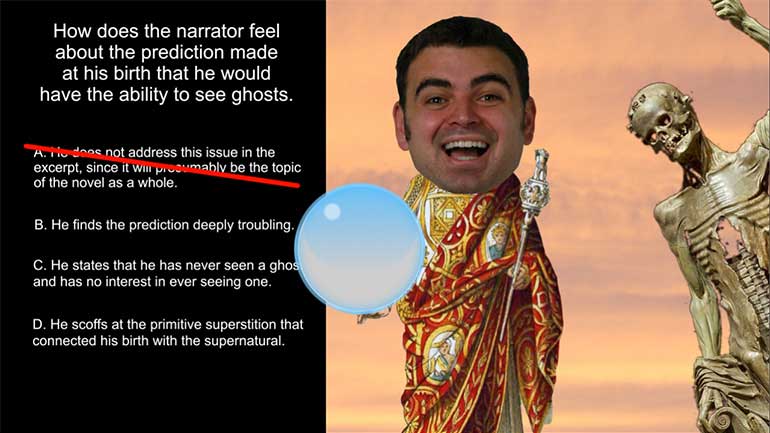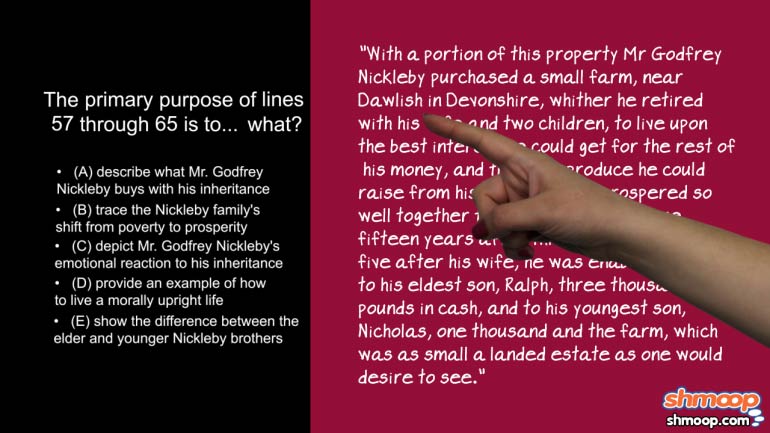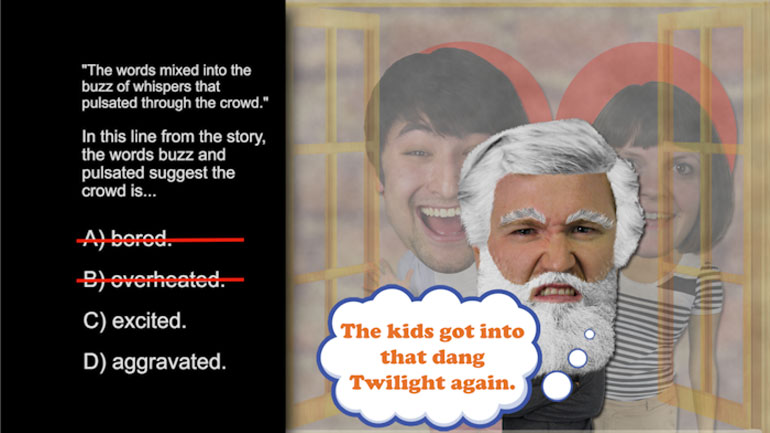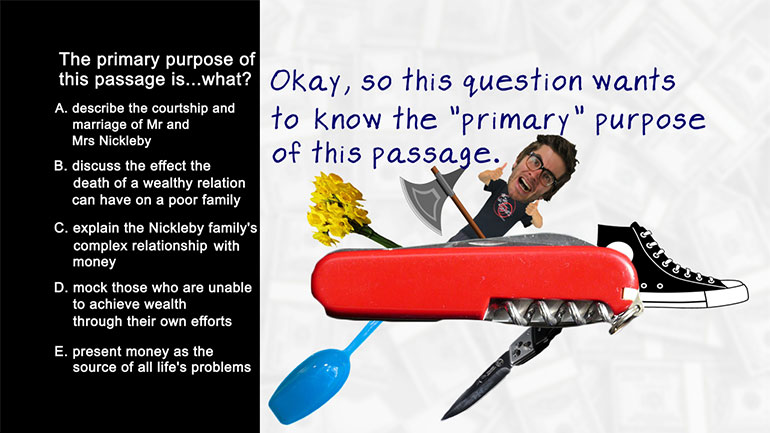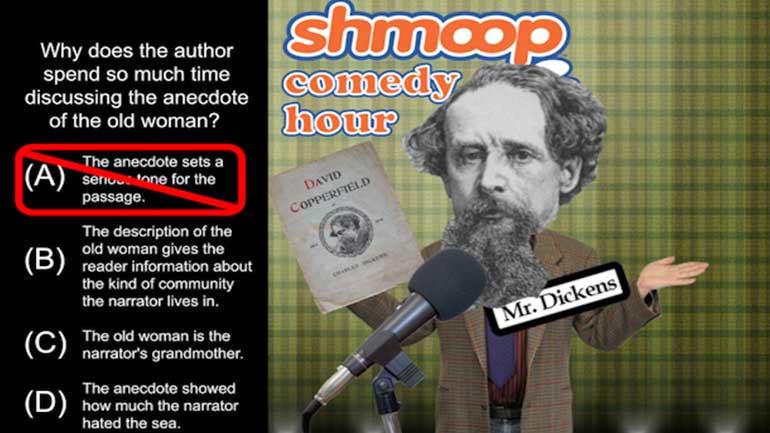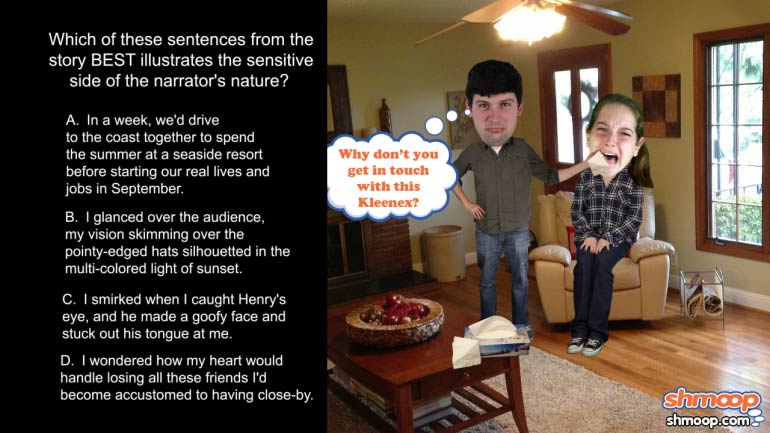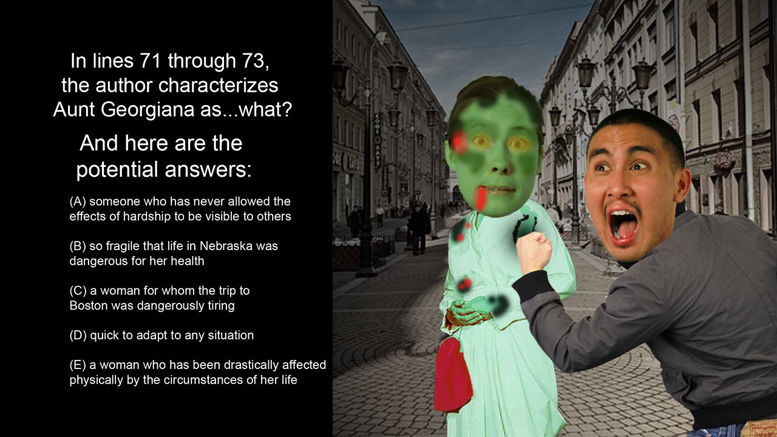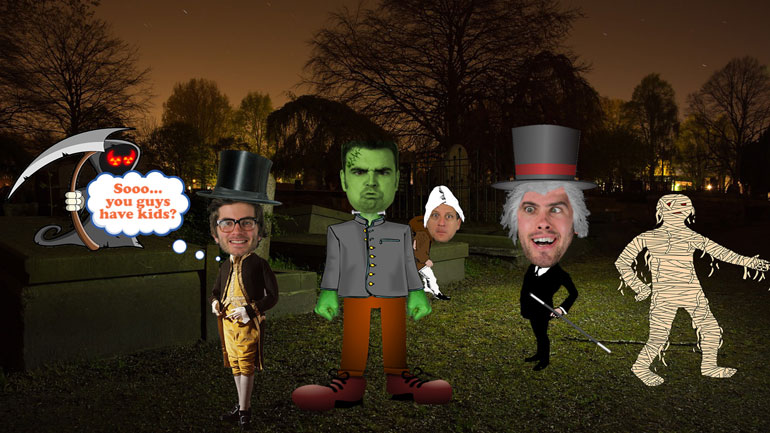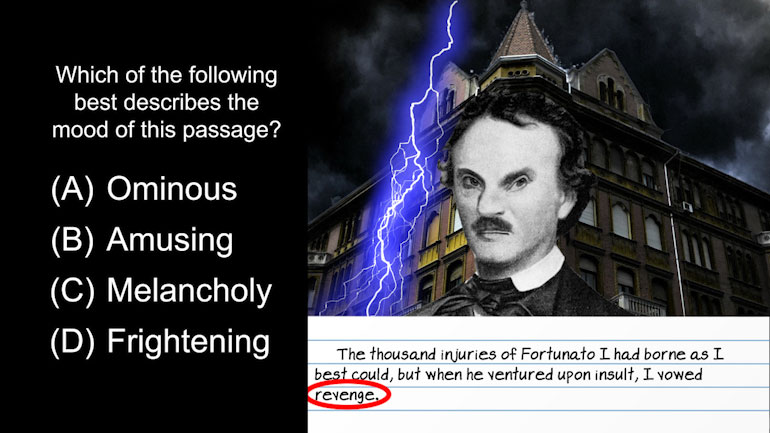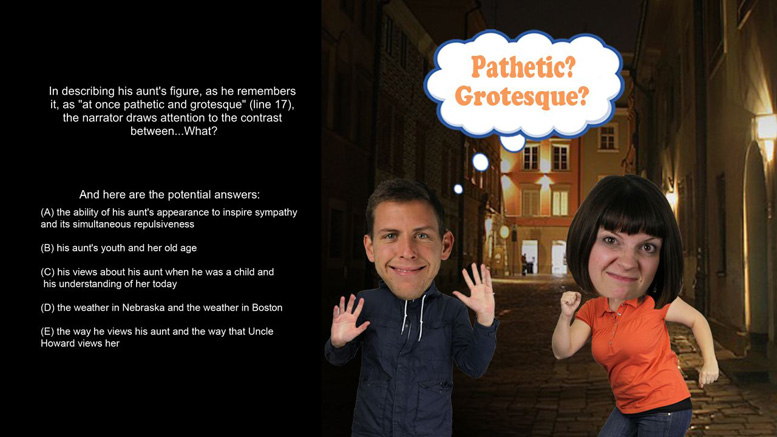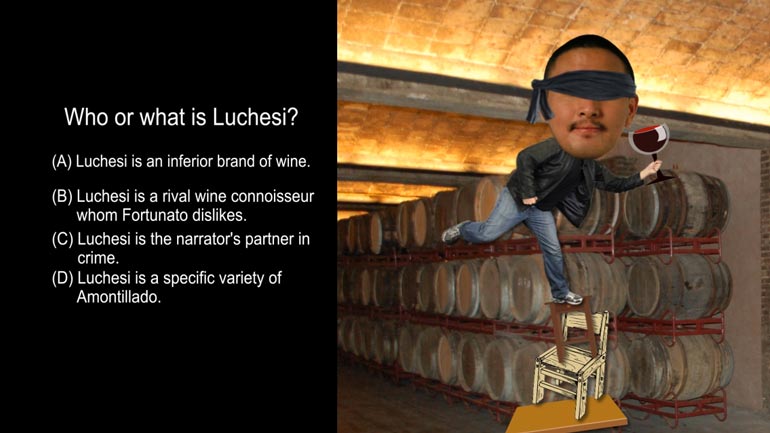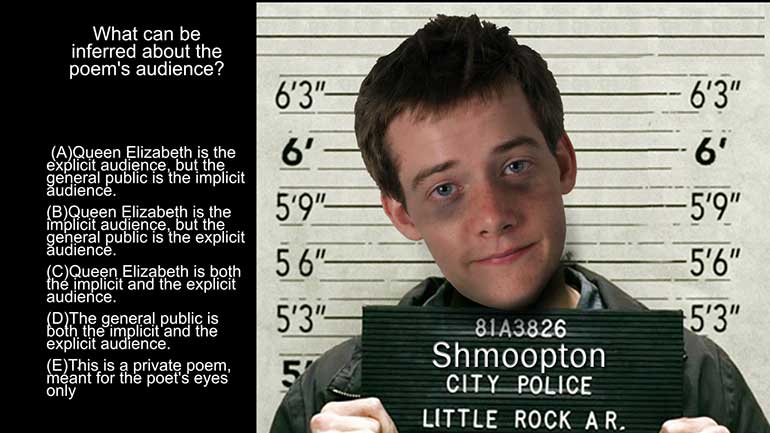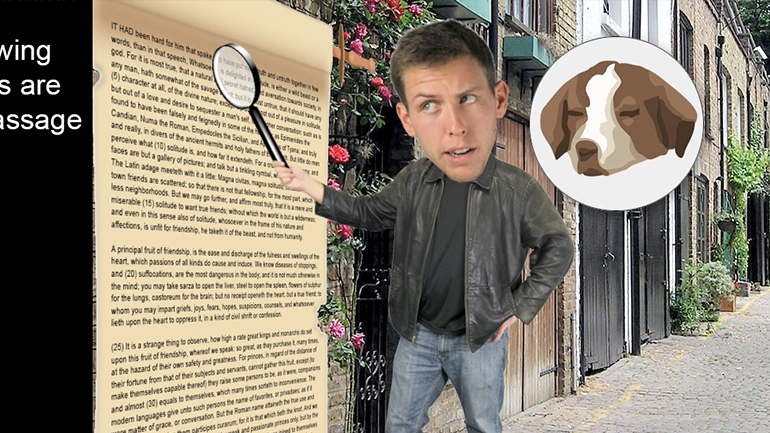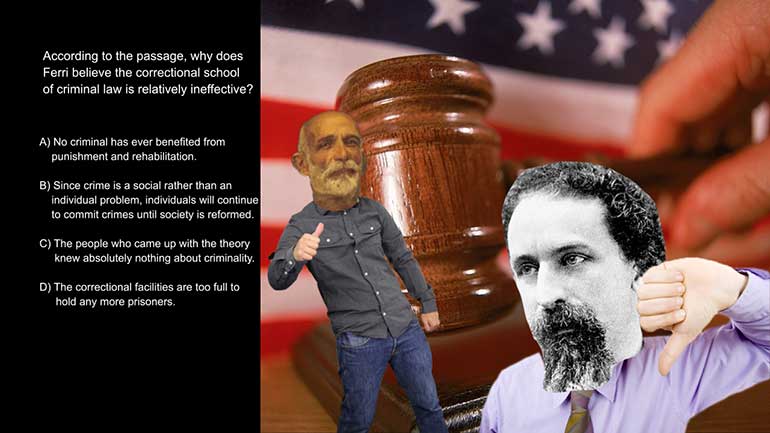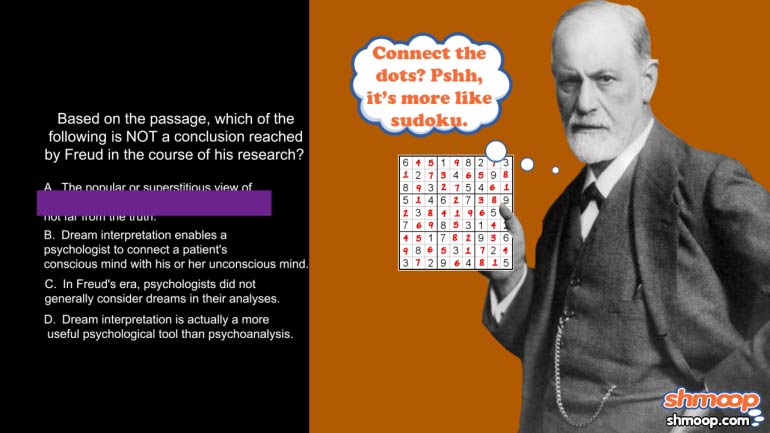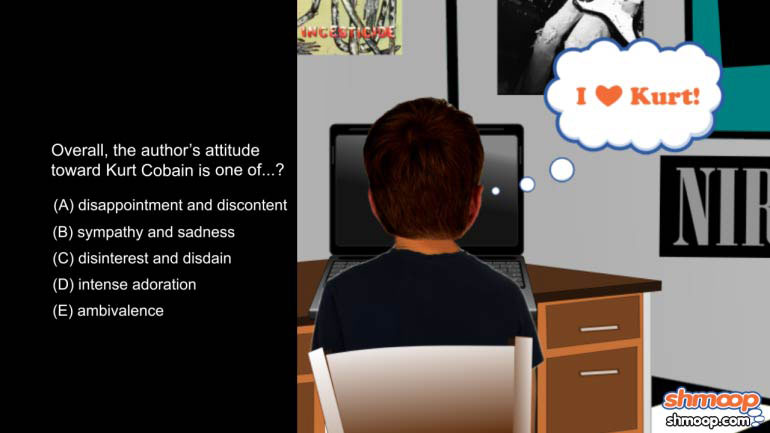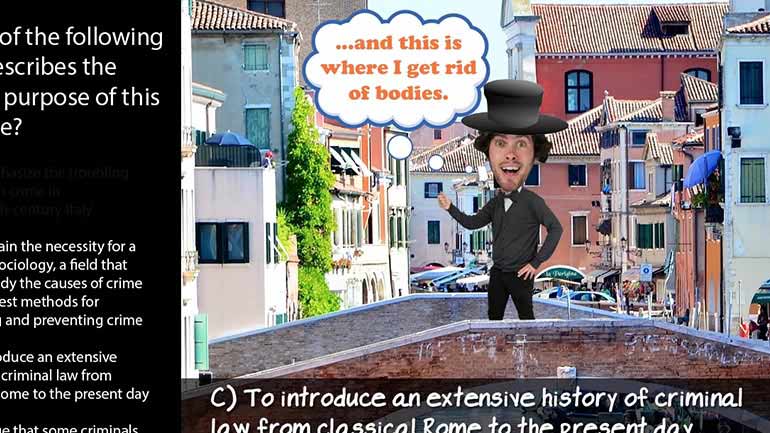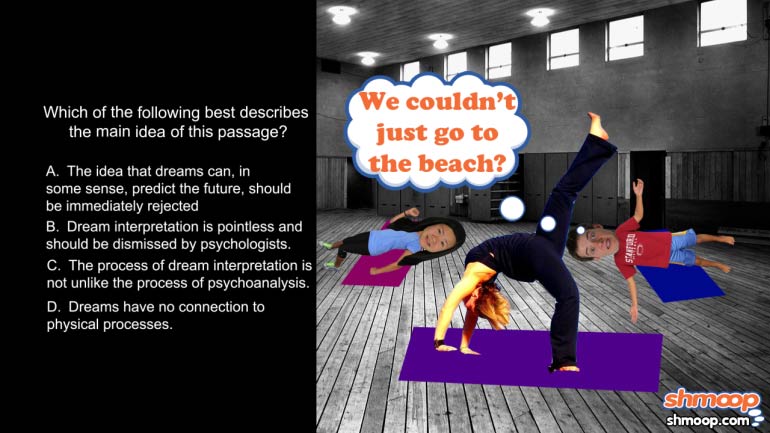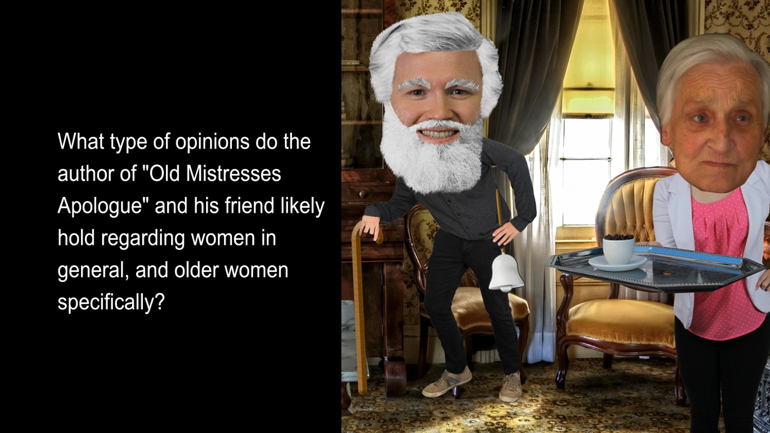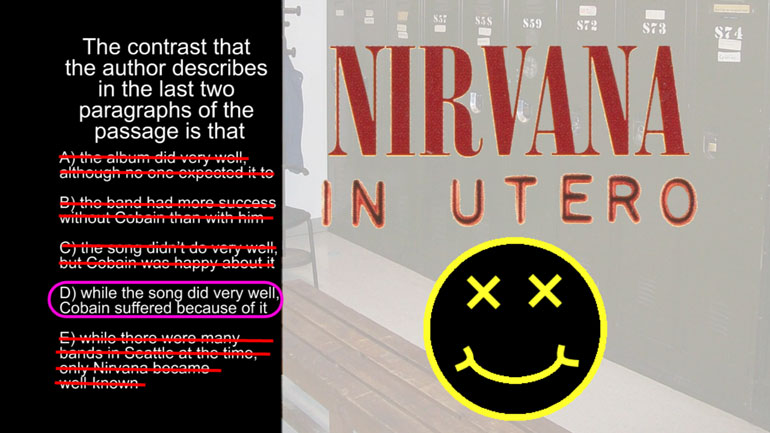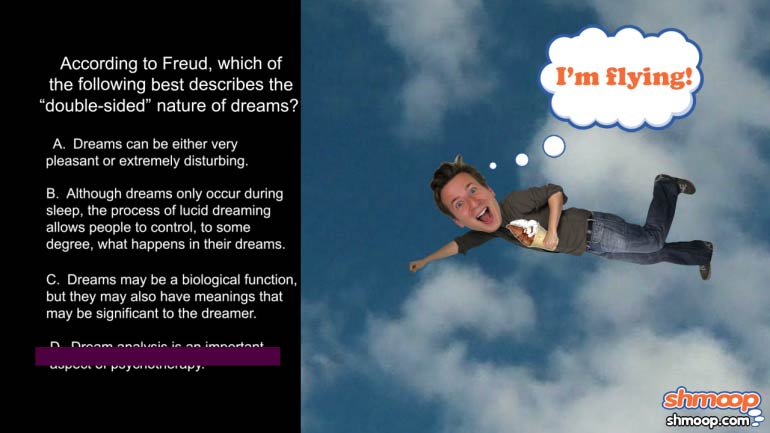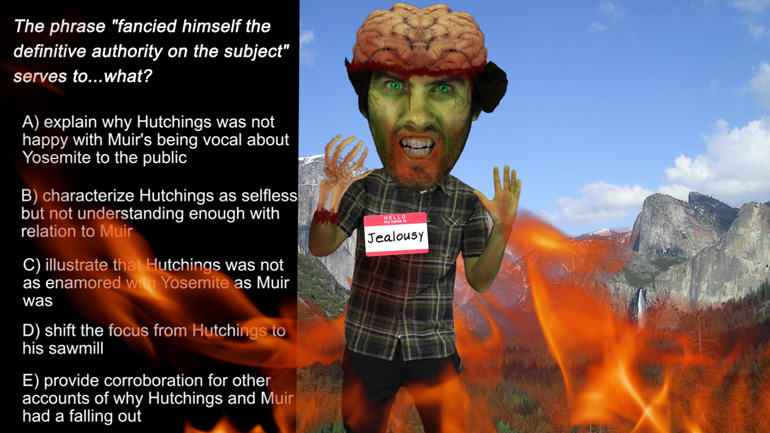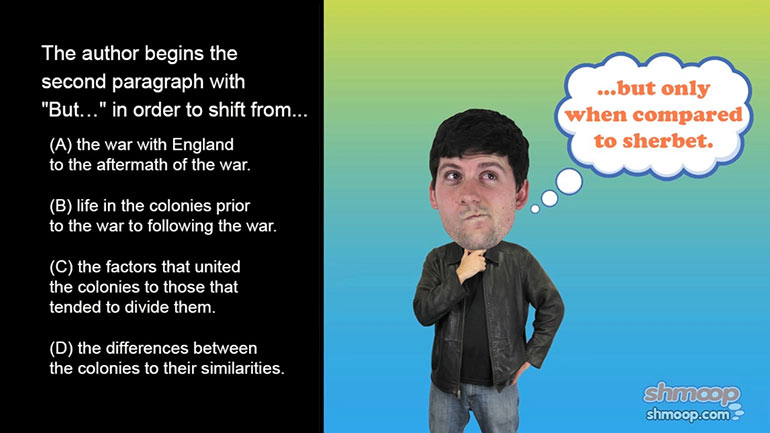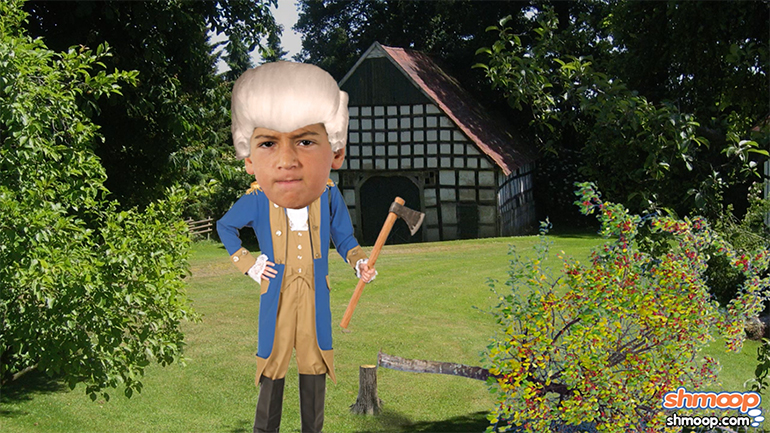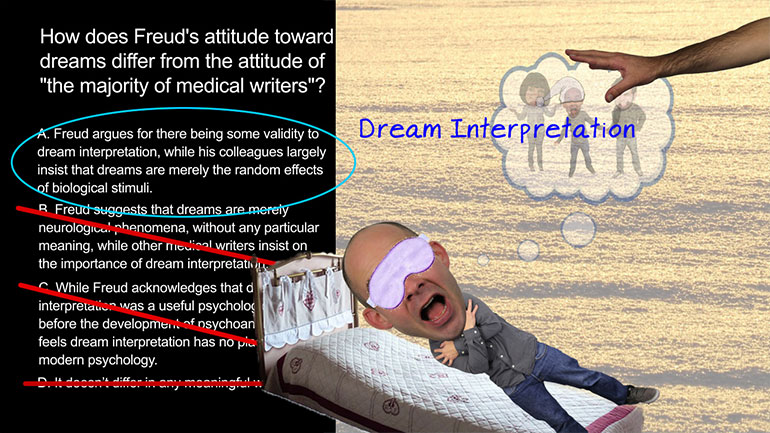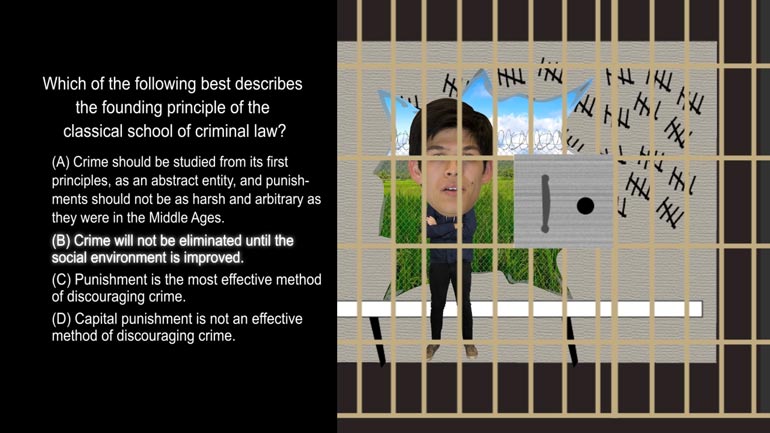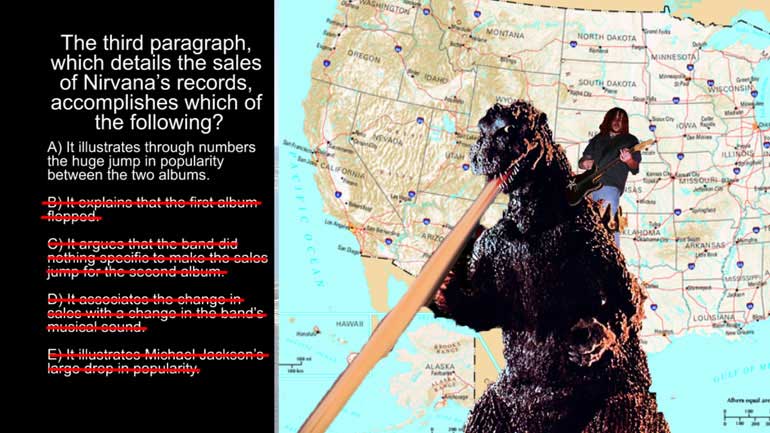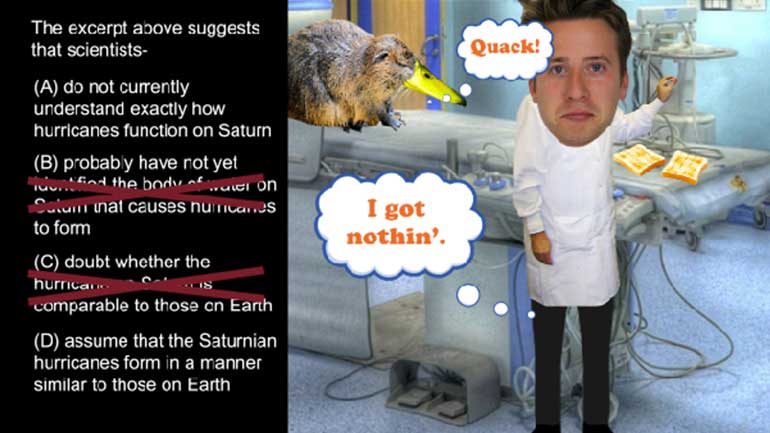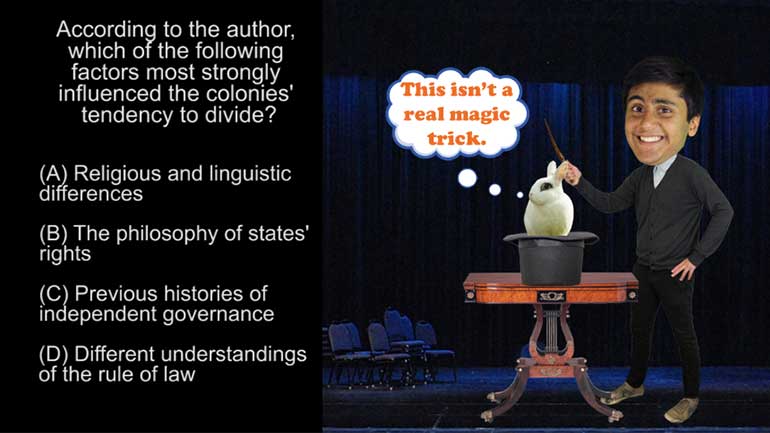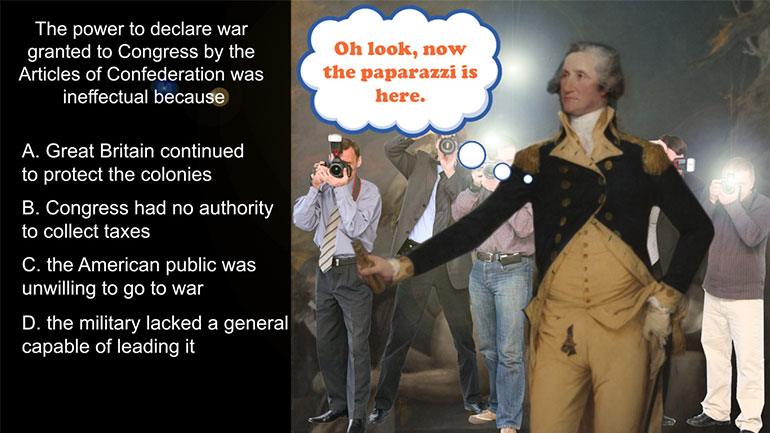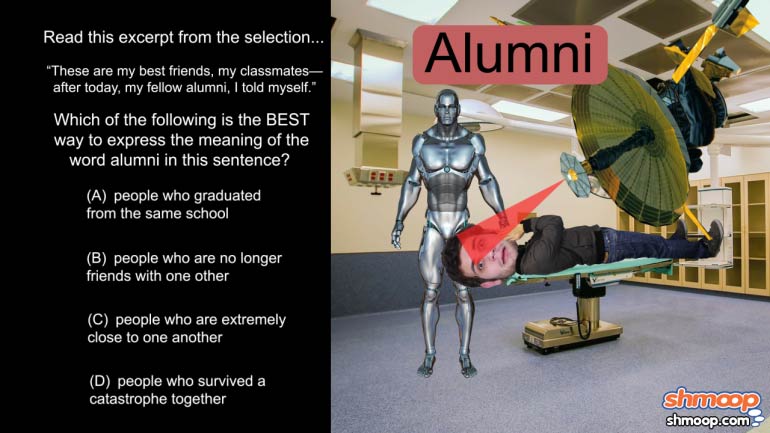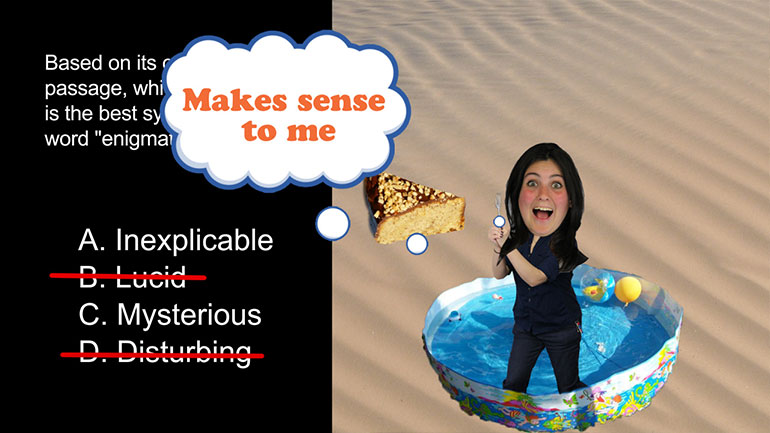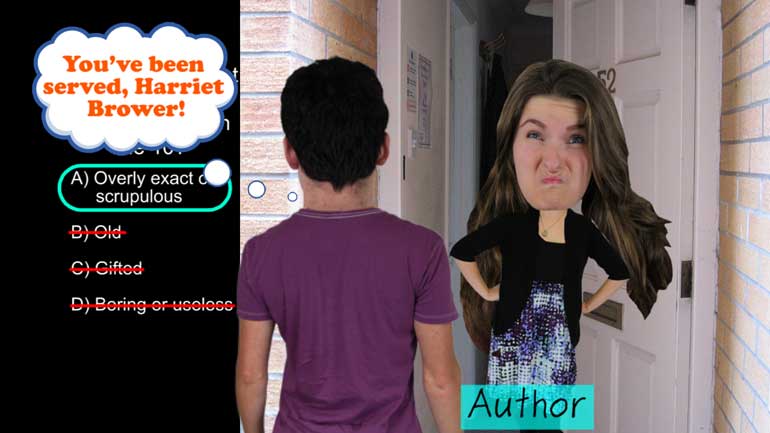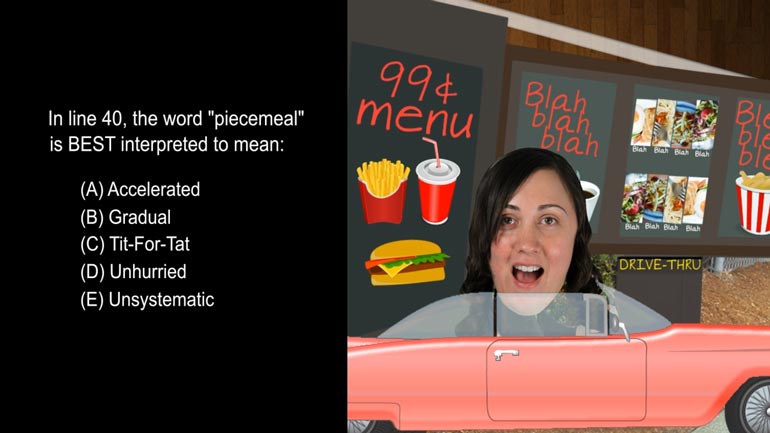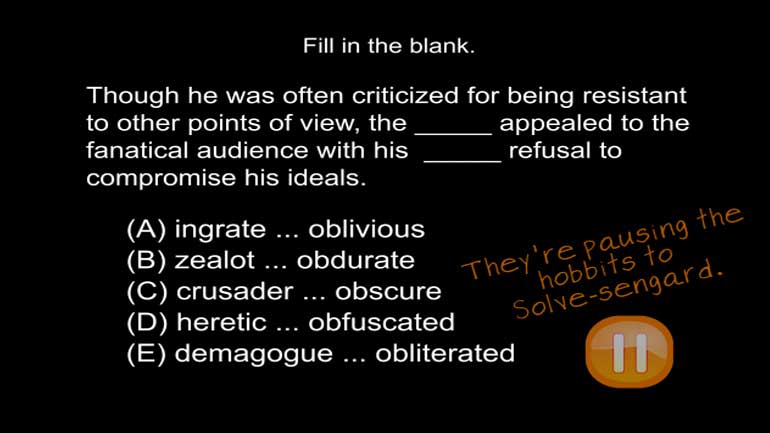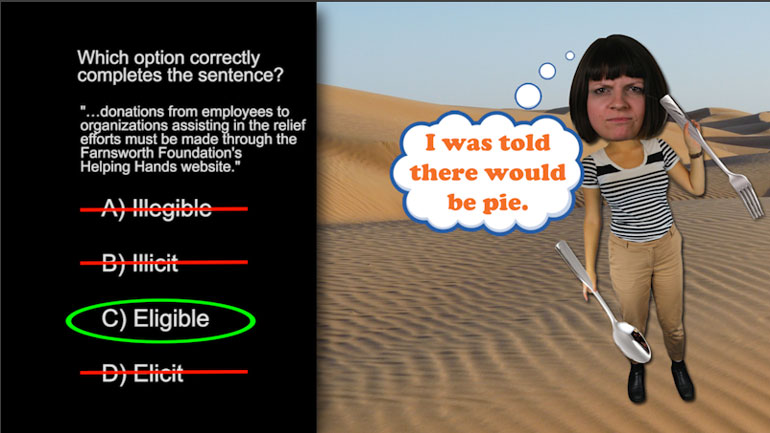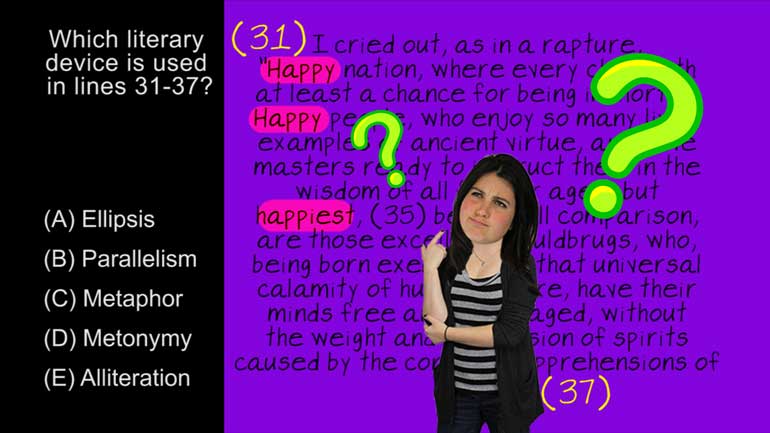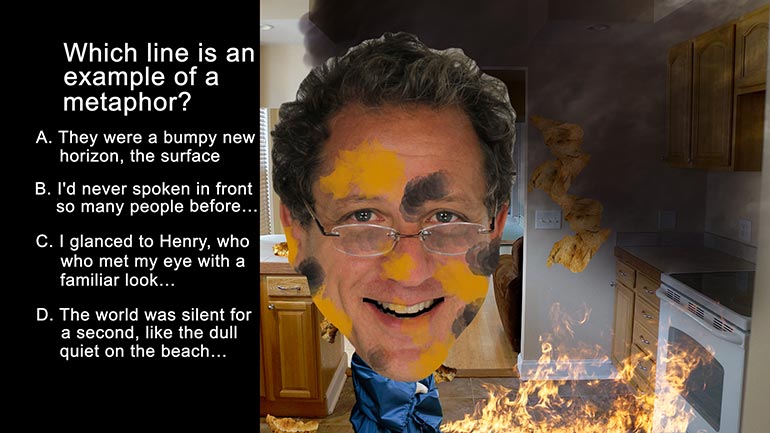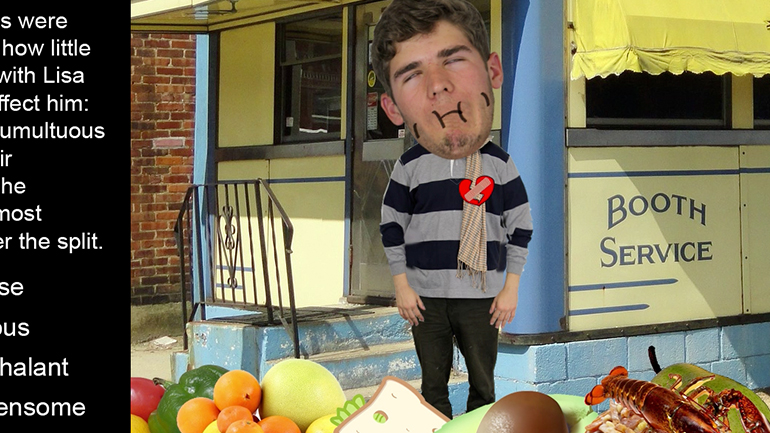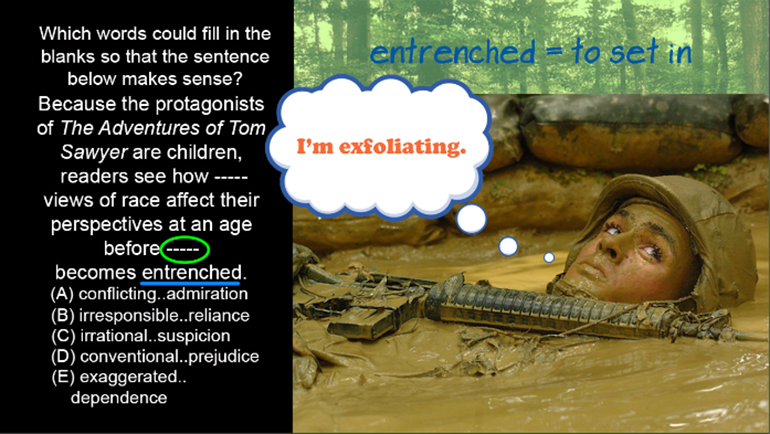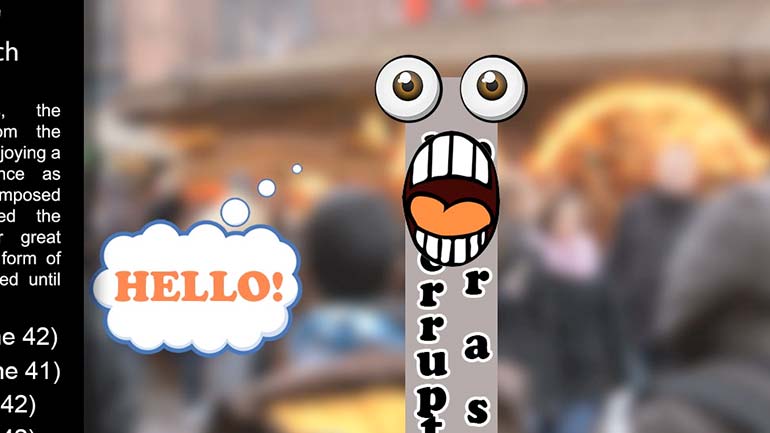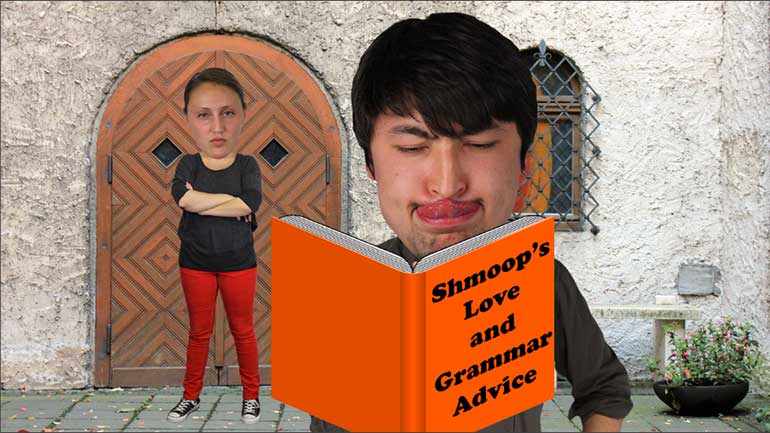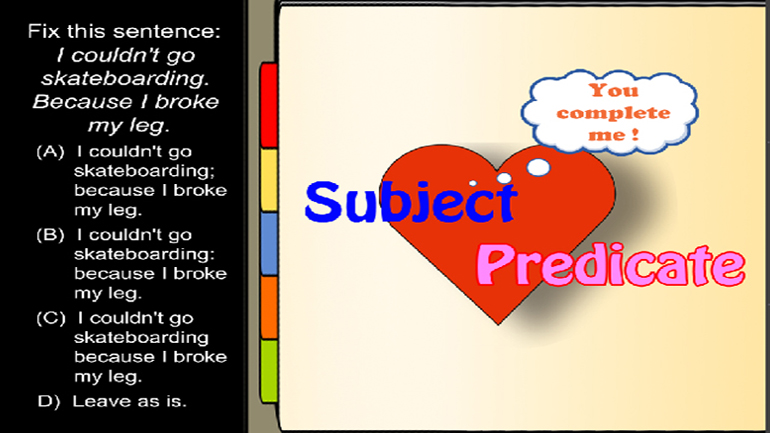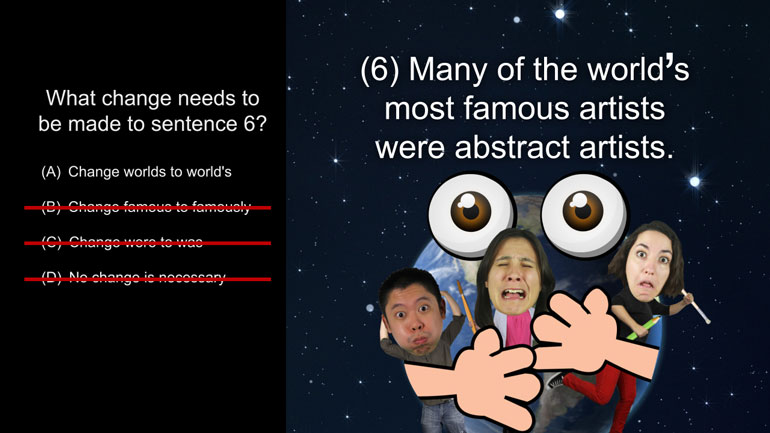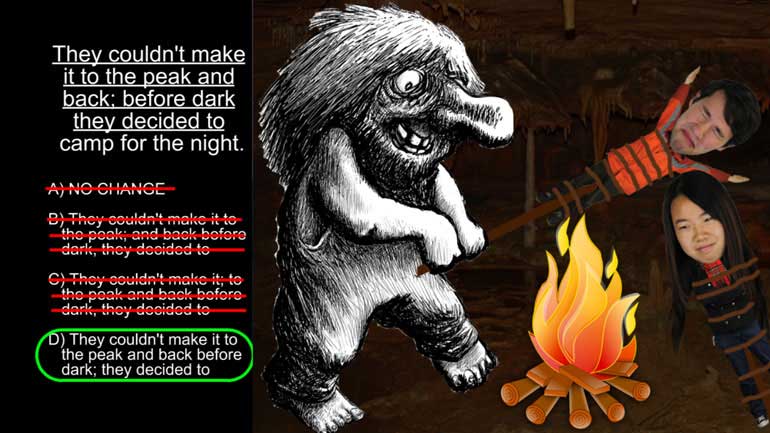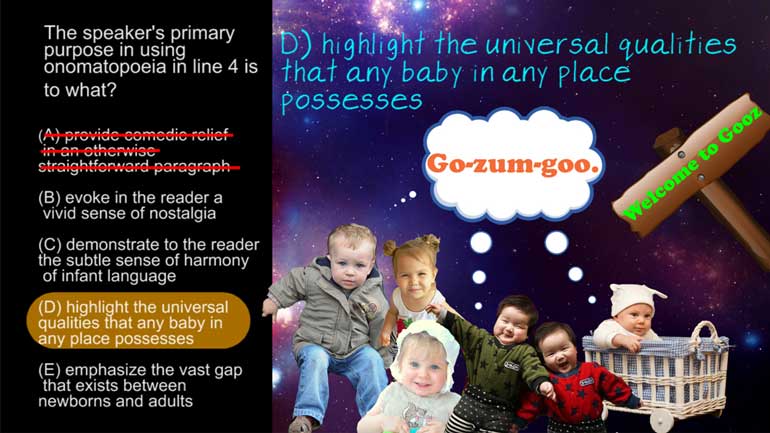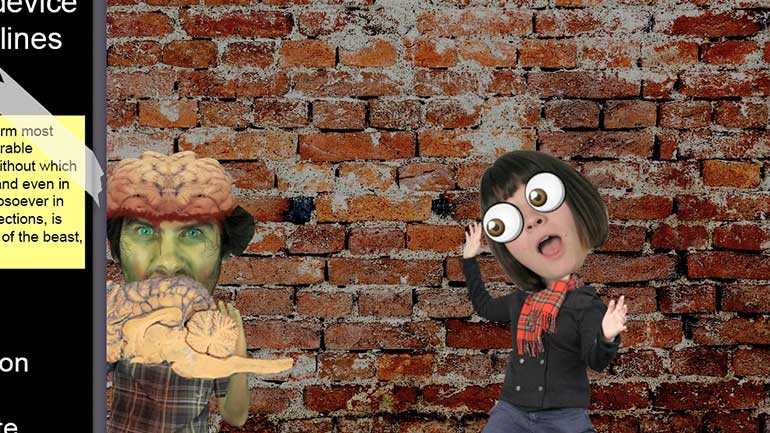ShmoopTube
Where Monty Python meets your 10th grade teacher.
Search Thousands of Shmoop Videos
English II Videos 95 videos
ACT Reading Prose Fiction Drill 1, Problem 4. How does the narrator feel about the prediction made at his birth that he would have the ability...
AP® English Language and Composition: Comprehension Drill 1, Problem 1. The speaker would agree with all of the following statements except what?
AP English Literature and Composition 1.6 Passage Drill 5. Death is primarily characterized as what?
AP English Literature and Composition 1.7 Passage Drill 5 239 Views
Share It!
Description:
AP English Literature and Composition 1.7 Passage Drill 5. Which line indicates the turn or shift in this poem?
- Reading / Form and Structure
- Product Type / AP English Literature
- Reading Literature / Analyze how author’s choices in structure create mystery, suspense, or surprise
- Reading Literature / Analyze how author’s choices in structure create mystery, suspense, or surprise
- Audience and Author's Purpose / Identifying effect of various authorial choices
Transcript
- 00:03
Here's your shmoop du jour, brought to you by the Human Soul. If you have one, we apologize.
- 00:08
Your chances of making it on Capitol Hill just took a serious hit.
- 00:20
Which line indicates the turn or shift in this poem?
- 00:24
And here are the potential answers...
- 00:29
If we were watching a thriller, we would call this "the twist."
Full Transcript
- 00:33
So... let's M. Night Shyamalan this baby and see what we get...
- 00:37
We're looking for the line -- it's a sonnet, so we've got a 1 in 14 shot -- where a shift takes place.
- 00:44
Well, the author starts out by basically saying that Death... isn't such a tough guy.
- 00:48
He says that others may call him "mighty and dreadful," but our hero feels he's... really
- 00:53
just a dreadful excuse for a villain.
- 00:55
So... where does the tone change?
- 00:57
The author never goes back on his word and decides that yes, in fact, Death IS a terrifying dude...
- 01:02
...nor does he change the subject and start talking about the weather, or say, "How 'bout them Knicks!?"
- 01:06
So it's a subtle change... but there is indeed a change.
- 01:10
At one point in the poem, the author goes from slinging insults... to backing 'em up.
- 01:14
Instead of just saying that Death isn't so scary, he starts explaining why.
- 01:17
"Thou art slave to fate, chance, kings and desperate men," says the poem.
- 01:22
And this is where we get our shift. Now we know why Death shouldn't keep us up at night...
- 01:26
because he's a slave to fate.
- 01:28
In terms Breaking Bad aficionados will understand, he's not really... the one who knocks.
- 01:33
So line 9 is the one we're looking for...
- 01:36
...which means that C is our answer.
- 01:38
If you'll excuse us, it sounds like there's someone at the door. Probably just a vacuum
- 01:42
cleaner salesman or something...
Related Videos
AP English Literature and Composition 1.2 Passage Drill 4. As which of the following is the object being personified?
AP English Literature and Composition 1.4 Passage Drill 3. How is Burne's view of pacifism best characterized in lines 57 through 67?
AP English Literature and Composition 1.6 Passage Drill 5. Death is primarily characterized as what?
AP English Literature and Composition 1.9 Passage Drill 4. Lines 32-34 are best understood to mean what?
AP English Language and Composition 9.1 Passage Drill. Based on the passage, what best describes the central theme of the essay?
